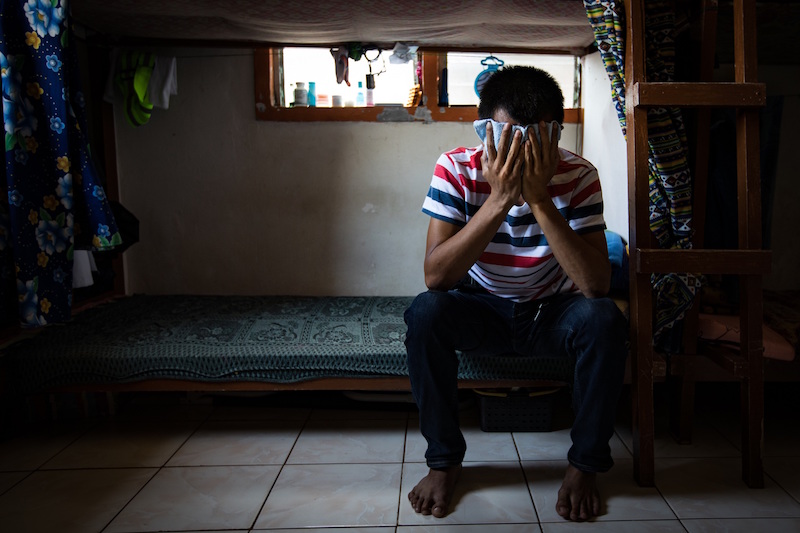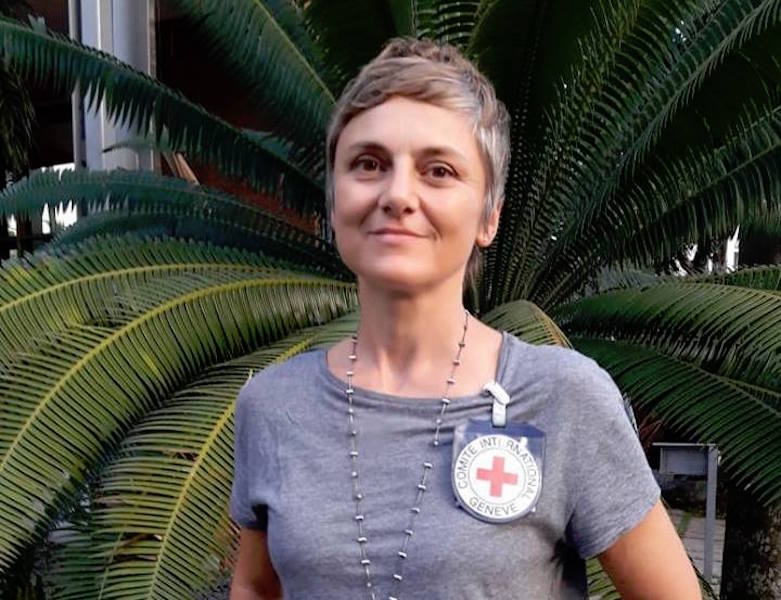(This piece was contributed by ICRC (International Committee of the Red Cross)
Camilla Matteucci heads the Protection team of the International Committee of the Red Cross (ICRC) in the Philippines focusing on support to families of missing people. In a short interview, she highlights the pain and agony of the families whose loved ones went missing during the Marawi conflict, and what the ICRC and the Philippine Red Cross (PRC) can do to help them.
What is the situation like for families whose loved ones remain missing one year after the armed conflict in Marawi City?
The truth is that we still do not know how many families are looking for their loved ones, or what their situation is like right now. This is precisely what our teams are working on with the Philippine Red Cross (PRC).
We know from experience that families of missing people face a constant emotional struggle that is incomparable to most other forms of grief. They suffer from a loss that is not just physical, but also psychological, emotional and social. They wait to be reunited with their loved ones, or at least get answers about what has happened to them. Sometimes, people with missing relatives end up spending their whole lives trying to find them. They never really stop thinking about it, are unable to move on or grieve in the absence of conclusive information about their loved one.
For instance, Jalil, a 29-year-old man whose parents remain missing, told us that not knowing where they are and what happened to them is “the hardest part.” When the crisis started, his parents chose to stay at home in Barangay Calocan. While thousands who were displaced by the Marawi conflict are starting to rebuild their lives, people like Jalil are finding it much more difficult to move on as they hold on to the hope of being reunited with their loved ones.
 For Jalil, 29, the “hardest part” is not knowing where his parents are and what happened to them. Photo courtesy of ICRC
For Jalil, 29, the “hardest part” is not knowing where his parents are and what happened to them. Photo courtesy of ICRC
These people need all the support they can get. In other countries that faced similar situations, such as Bosnia-Herzegovina, Kosovo, Falklands/ Malvinas Islands, families with missing relatives organized support groups or associations so they could help one another.
How many cases of missing people is the Red Cross currently managing?
We are now following up on more than 100 persons reported to the Red Cross teams as missing by their families, but we believe there are more.
In the first weeks of the Marawi conflict, the ICRC and the PRC worked to help reunite people separated by the hostilities. The PRC established welfare desks at evacuation centres, where hundreds of people registered.
Many of them reconnected and reunited with their loved ones, with or without the help of the Red Cross, in the weeks and months following the separation, which was considered the emergency phase.
The authorities are the ones responsible to account for all those who went missing in relation to the conflict. But sometimes families may not feel at ease to report these cases for a number of reasons, including lack of information, cultural beliefs or fear of stigmatization. In such circumstances, the ICRC can provide a safe space for them to reach out, to try to find answers and overcome the difficulties that the disappearance of their loved ones have caused.
We encourage those who have information about people who went missing in the Marawi conflict to approach the Red Cross. Thanks to our presence in Marawi, both the ICRC and the PRC are already collecting such information and at present over 100 cases are being verified.
What can the Red Cross do for people with missing relatives?
As part of our ongoing response to the conflict in Marawi, the ICRC and the PRC have stepped up efforts to get back to families who reported having missing relatives.
In Marawi, we believe there is space for an independent and neutral humanitarian organization such as the ICRC so that these families may openly share their concerns and needs. The Red Cross can help them try find answers about the disappearance of their loved ones.
 Camilla Matteucci heads the Protection team of the International Committee of the Red Cross (ICRC) in the Philippines. Photo courtesy of ICRC
Camilla Matteucci heads the Protection team of the International Committee of the Red Cross (ICRC) in the Philippines. Photo courtesy of ICRC
We work only with the immediate relatives of the missing persons. Our support for them depends on what they want or need. Do they want to continue the search? How much information can the ICRC share with the authorities and other parties? We share the information only with the consent of the family.
Our approach is centred towards the victims of the conflict: on one side, the families of missing people who have the “right to know” where their missing relatives are or what has happened to them, and, on the other, the dead who should be respected and managed in a dignified manner. We are not creating a parallel system (to the government) but rather complementing it.
On these issues, the ICRC is putting its experience and expertise at the service of authorities in charge. In particular, it has supported the work of the Management of Dead and Missing cluster of the National Disaster Risk Reduction and Management Council.
How long will this process take?
Speaking on the basis of the ICRC’s experience in other countries, the process of clarifying the fate of the missing may take years or even decades. Proper retrieval and management of human remains by the authorities is of crucial importance to increase the possibility of families to eventually get some answers.
The bottom line is that this issue must be prioritized in the rebuilding of Marawi City, and the healing of its people.
Families have the right to know the fate of their loved ones under the international humanitarian law. It is important to remind that the authorities have the ultimate responsibility for preventing disappearances and for clarifying what has happened to the missing persons.
The ICRC is a neutral, impartial and independent humanitarian organization and has been assisting people affected by the fighting in Marawi City since May 2017, together with the Philippine Red Cross.
If you have information about a person who went missing in the Marawi conflict, please contact the ICRC offices in Iligan, Cotabato, Zamboanga, Davao or Manila. You could also send us a private message on our Facebook page or contact the Marawi chapter of PRC.
